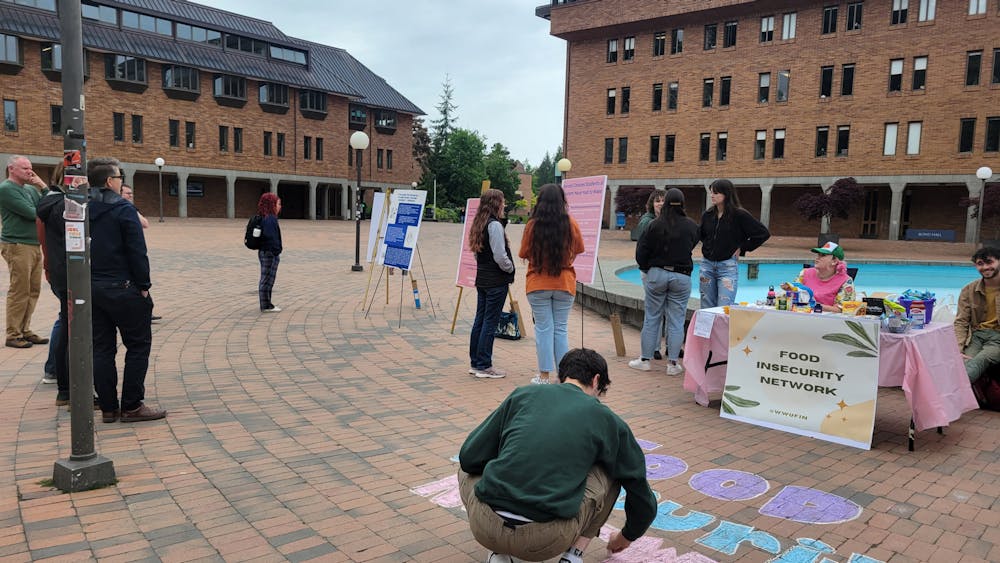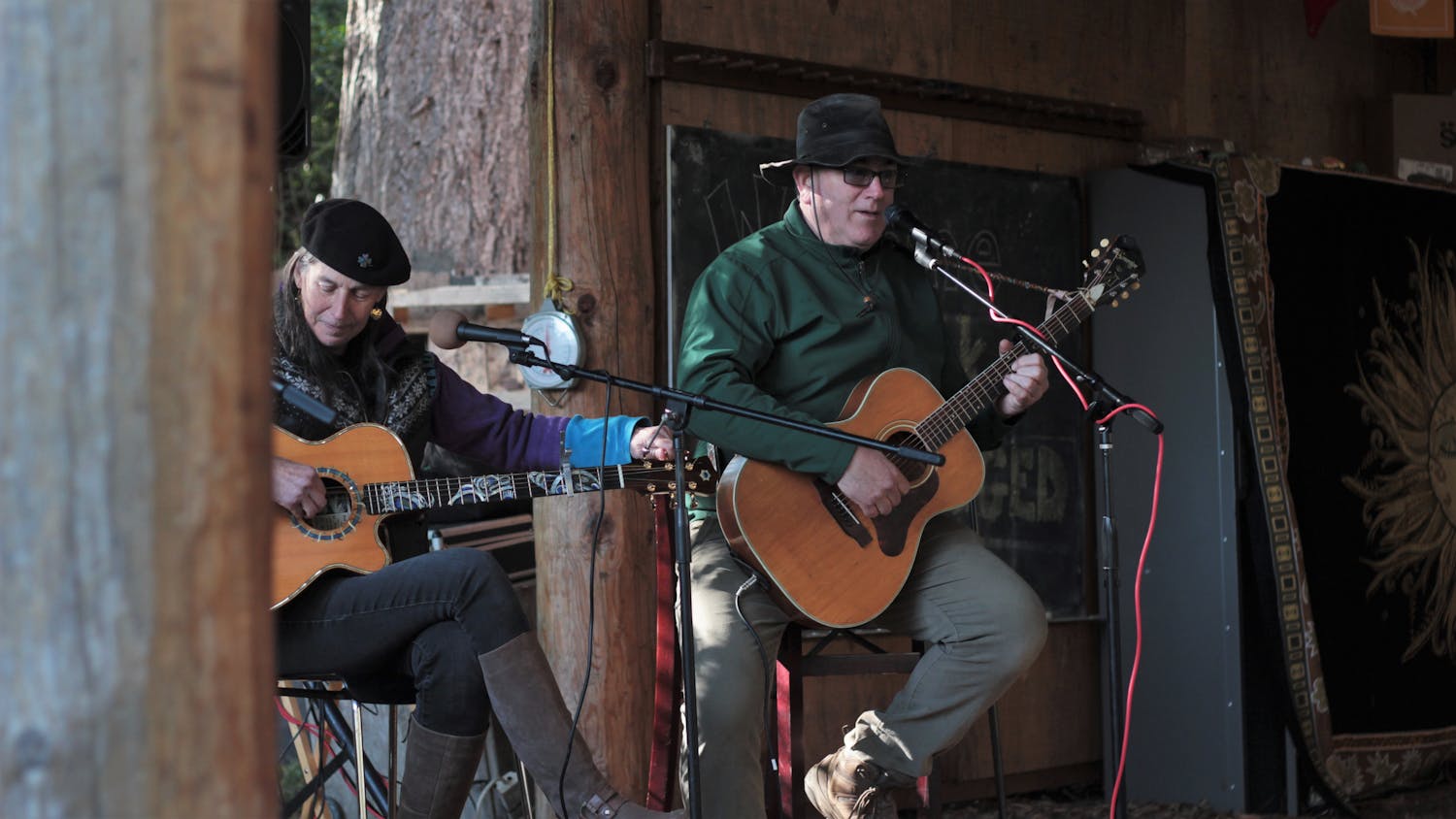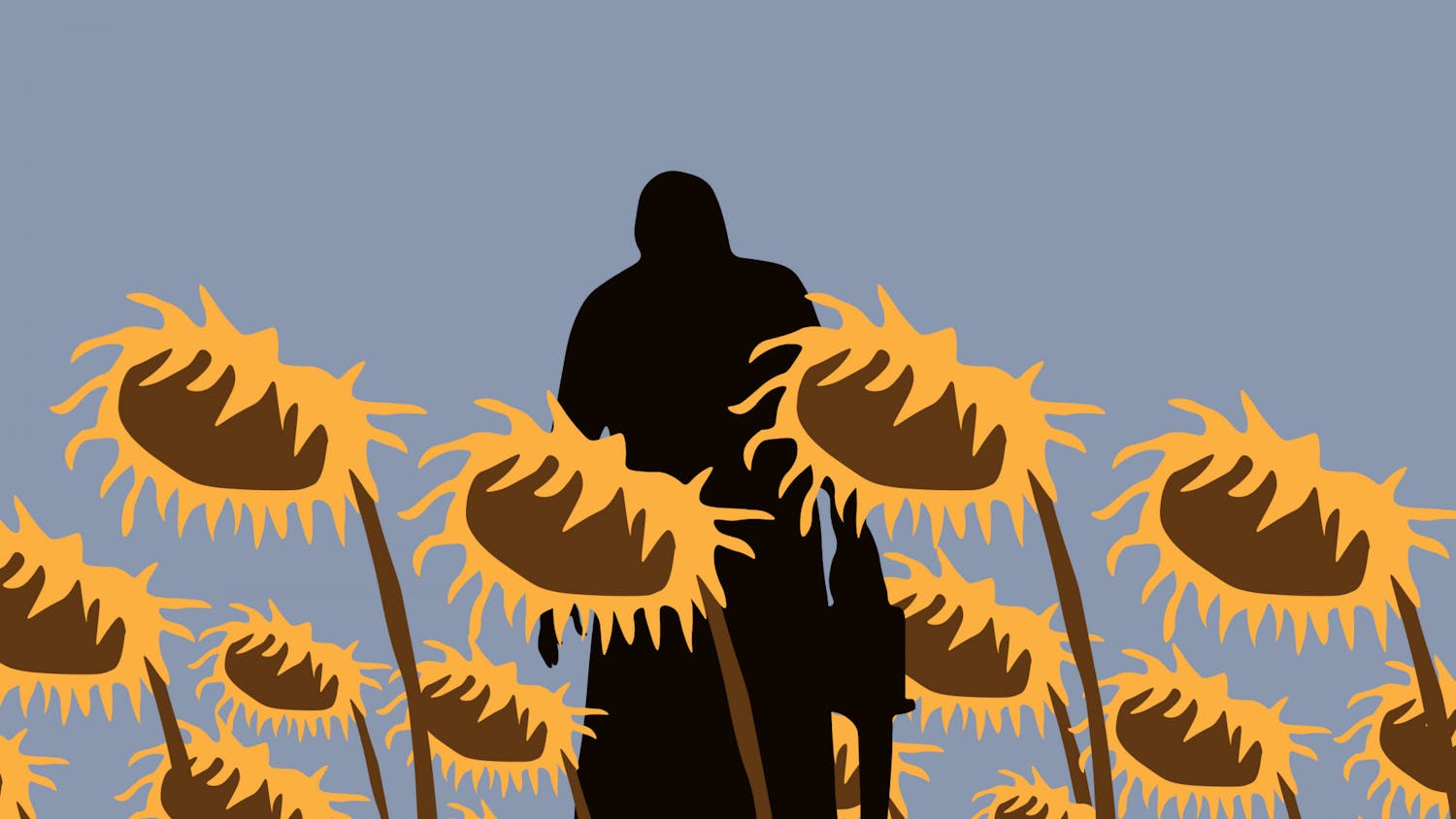Content Warning: This article references domestic abuse.
College is stressful. Between the cost of attendance, deadlines and external factors like work, even the most fortunate student can find themself struggling. Across experiences, backgrounds and situations, one thing remains constant: everyone needs to eat.
In fall 2022, over 650 Western Washington University students participated in a survey conducted in partnership with the Washington Student Achievement Council. The purpose of the survey was to “assess the prevalence of basic needs insecurity among students,” said Michael Sledge, executive director of student life and associate dean of students.
Results showed 39.2% of respondents experience food insecurity.
Created as part of a capstone project in the sociology department, Food Insecurity Network is a Western club started this quarter that plans to respond to this issue. Their goal, lead officer Abby Schell said, is to support people in need while educating people about resources and providing a safe space for discussion.
“[Food insecurity] is really anything, like not being able to feed yourself how you would like,” she said. “Whether that’s nutritionally or having a variety in your diet or being able to eat conveniently.”
Second-year Western student Meilin Scott wants people to know that food insecurity is not an abstract concept – it can happen to anyone.
Her experience with food insecurity began in fall of 2022, when she got out of an abusive, domestically violent environment and became financially independent.
“I finally decided that my well-being and my worth was much more than trying to stay in a place that may have been financially secure and I had food, but I didn't have dignity, respect or love,” she said.
Despite the freedom this choice gave her, it came with the pressure of having to figure out what she was going to eat and how to afford it, all while balancing classes and work.
“I remember last summer I was having a really hard time and was wondering, ‘How am I going to stay in school? Am I going to have to drop out?’” Scott said.
A lack of food doesn’t just leave people hungry. It can have a tangible impact on their futures, said Terri Kempton, manager of Outback Farm, a Western resource that grows and distributes food to students facing food insecurity.
“If you don't have enough food to eat you're going to not feel great and have a hard time focusing and succeeding at school,” she said.
The impact goes beyond the educational environment, something Ezekiel Ross, a first-year with food-insecurity experience, can speak to firsthand.
“I don’t think everyone realizes what a profound effect malnutrition and just eating poorly in general has on the human experience,” he said. “It’s really substantially harder to excel and have a good outlook about the future when you’re surrounded by food that doesn’t meet your needs.”
There are resources available to students. There’s the Outback, Western’s basic needs office, campus food pantries, a dining dollar donation program, the Supplemental Nutrition Assistance Program and Swipe Out Hunger.
There are also, however, a multitude of issues with these resources. Swipe Out Hunger, which allows donated dining hall swipes to be received by food-insecure students, affects financial aid. The campus food pantries are restocked weekly, but are often near-empty within 24 hours.
“We always say, ‘Don't be shy and don't be hungry.’ Take what you need, leave what you can, and so it's great that students know about it and are using it. However, it does speak to the level of need and how prevalent it is,” Kempton said.
Another issue for food-insecure people is time. Scott received SNAP benefits, but the application process was lengthy, including an interview that was difficult to schedule.
Applicants can call the Washington State Department of Health and Human Services to be interviewed, but those calls are only accepted Monday through Friday at 8 a.m. to 3 p.m. When Scott called, she was put on hold for over 30 minutes. Her only viable option was to have the interview in person, at the DHSH Community Services Office near Bellis Fair Mall.
“For students who don't have a car, that's just another barrier,” she said.
The process took around three hours. In the waiting room, Scott saw people arrive just after her and get turned away due to the 3 p.m. cutoff for appointments.
“These systems are not accessible for people who are working or students, and who likely have the most need,” she said.
As part of their capstone, the founding members of FIN researched food insecurity on Western’s campus. The interviews they conducted reflect greater concerns and have structured their cause.
“[It’s] a lot of ‘I don't have either time or the money or both to access the things I need to feed myself how I'd like,’” Schell said.
Though their research has concluded, FIN wants to be based on what the community needs. Food insecurity is an issue many students have faced or will face, and keeping it in conversation opens the door to alleviating the burden.
“I think the biggest problem is shame,” Scott said.
While food insecure, Scott called Counseling and Wellness for support. When asked what was keeping her going, she thought of the opportunity to do a summer research internship. This summer, Scott will be in Kenya, conducting research in Egerton University’s Department of Crops Horticulture and Soils. She’s one of six chosen students in the country.
“I just want to share this story with students so that they know they're not alone,” she said.
The FIN club seeks to help establish an environment where people can talk to each other about food insecurity and resources. They showcase food pantries around campus on their Instagram and are working to get more people aware and involved.
Kempton said the interest in food insecurity and figuring out ways to combat it reflects a change in attitude toward students.
“It's not just you show up, you take a test and I give you a grade,” Kempton said. “Instead, it's like you are here, you are valued, you are part of our community and you deserve to eat.”
Kumiko Juker (she/her) is a campus life reporter for The Front this quarter. When she's not checking her email, she enjoys spending time with her friends, writing poetry and accumulating random knowledge. She can be reached at kumikojuker.thefront@gmail.com.






